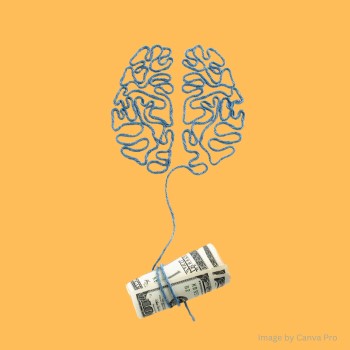 The submissions deadline has now passed, and a new call for papers will be issued in the fall along with this year's volume.
The submissions deadline has now passed, and a new call for papers will be issued in the fall along with this year's volume.
SUBMISSION GUIDELINES
EDITORIAL POLICY
Volume 16: Philanthropy and Academic Freedom
The AAUP’s Journal of Academic Freedom invites submissions for the 2025 volume of scholarly articles that address the impact of large private donations on academic freedom and the educational mission of colleges and universities. Fiscal constraints resulting from decades of disinvestment in public higher education form the backdrop of an increasing dependence on philanthropy. Administrators deploy the refrain that “the donors won’t like it” in relation to a widening array of cultural or academic programs. Resources, we hear, are the reasons we do X and not Y and Z. Educational priorities with programmatic or ethical rationales—channeled appropriately through structures of shared governance—are too often blocked by administrators whose priorities are aligned with donor or trustee demands. Some donors have taken advantage of fiscal precarity in higher education to influence programs, appoint specific faculty and staff, and even determine research outcomes.
The entanglement of large private financial donations in higher education has always posed questions about the risk of intrusion of special interests into the academic and civic mission of colleges and universities. Some donors have troubling ties to fossil fuel pollution, human rights violations, and war crimes. While private donations provide necessary funding for infrastructure, research, and scholarships, they may also perpetuate inequitable access to education when institutions prioritize programs or facilities that appeal to wealthy donors, leaving less visible needs unmet. Too often absent from debates about philanthropy in higher education is the tension between the tax-deductibility of large donations and the public interest. How can institutions limit excessive monitoring of gift expenditures, and even unrelated campus activities, by donors? What is the role of the faculty in decision-making related to these donations?
Recently, the ongoing war in Israel and Palestine has triggered questions and concerns about philanthropy in higher education. In the wake of Hamas’s war crimes against civilians on October 7, 2023, students and faculty allies alerted campuses and the public to the escalating war crimes committed by Israel in its retaliatory campaign in Gaza. Campus protesters have drawn on the rights of assembly, speech, and academic freedom to elevate critical questions about the human costs of this war, including the risk of genocide. Sometimes facing severe repression and countermovement violence, students demanded transparency and disclosure of university investments and contracts with any parties involved in the ongoing atrocities, pressing into view the potentially fraught relationships between private interests and those of the academy.
Although we will consider any eligible submission relevant to the journal’s core focus on academic freedom, we will give priority to those that address any of the following topics:
- Impacts of private donors on academic freedom in determining priorities and policies for universities, colleges, and departments
- State and federal oversight of public universities and public and private funding
- Antitax measures that have limited public financing of public education, undermined fiscal soundness, and increased dependence on philanthropy
- How high-impact research, student protests, or manufactured controversies affect public sentiments about higher education
- Political, economic, and cultural analyses of the impact of private financing on colleges and universities
- The influence of philanthropy on athletic operations, advertising, and academics
- Student campaigns to compel institutions (and their foundations) to disclose and divest from investments tied to human rights or environmental violations
- Efforts by faculty governance bodies to compel disclosure of conflicts of interest between donations and the educational or ethical mission of the institution
- Faculty and student divestment and boycott campaigns that aim to align investment, procurement, and contract policies with institutional missions
- Tax policies, tax rebates, and discussions about the status of philanthropic gifts and funds contributed to public institutions
- Land-grant universities, as legacies of settler colonialism, and the status of “public” lands, buildings, and monuments related to higher education
- Administrators, boards of trustees, and their relations with donors
- Climate denialism and fossil fuel interests
- Higher education as a site of struggle between private and public interests
Download a one-page version of the call for papers.
SUBMISSION GUIDELINES
Electronic submissions of 2,000–5,000 words (including any notes and references) should be sent to [email protected] by March 19, 2025, and they must include an abstract of about 150 words and a short biographical note of one to two sentences about the author(s). Because of word-count limitations for the volume, shorter submissions might have a better chance of acceptance, and the editors may make acceptance of any article contingent on substantial edits or cuts.
Please read our editorial policy prior to submitting. We welcome submissions by any and all faculty, staff, graduate students, and independent scholars. Authors using pseudonyms must notify the journal at the time of submission, disclose their real names, and explain their reasons for wishing to keep their identities confidential. If you have any questions for the faculty editors about the call for papers or ideas for an article, you may contact Michael Dreiling and Pedro García-Caro, but be sure to send submissions to [email protected] rather than to their addresses.
While this is an academic journal with submissions subject to peer review (authors should indicate with their initial submissions if this is useful or important to them), we welcome innovative and journalistic prose styles. The journal uses the latest edition of the Chicago Manual of Style and follows Chicago’s author-date system of citation. Authors should anticipate that, if an article is accepted for publication, it will need to be put into Chicago style. Read more about the Journal of Academic Freedom.

